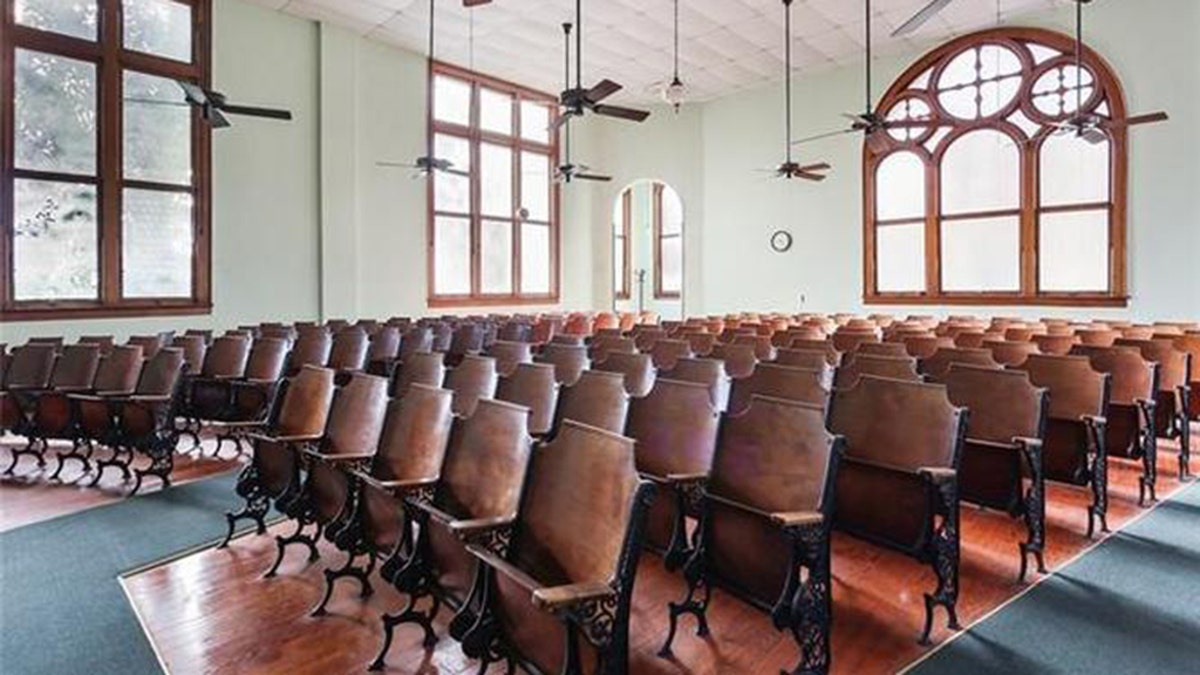
The inside of the New Orleans-based church Beyonce reportedly purchased. (Redfin)
The Journal of Social Psychological and Personality Science (SPPS) released a study last month demonstrating that religious people live longer. The study observed that “self-reported religious service attendance has been linked with longevity,” and confirmed this by examining obituaries from 43 U.S. cities. Researchers found that religiously affiliated people lived between 5.64 and 9.45 years longer than those who were not religiously affiliated.
The findings from SPPS are consistent with many other studies. A JAMA Internal Medicine study found that “women who went to any kind of religious service more than once a week had a 33 percent lower chance “than their secular peers of dying” during the 16 years following the research. Another JAMA study reported that women who attended religious services at least once a week were “associated with an approximately 5-fold lower rate of suicide” than those who never attend a service. A PLOS One study reported that people who attend religious services regularly experience less stress and were “55 percent less likely to die” over the next 18 years than those who did not attend.
Why do religiously active people outlive their non-religious peers? A recent article at The American Council on Science and Health attempted to provide an answer as they examined the SPPS findings:
“…‘the opportunities and incentives to volunteer and participate in other social groups provided by religious communities’ were in part responsible for the lengthening life-span. Those who might recoil at religious belief extending life might consider engaging in social activity and friendship as the real underlying correlation.”
So, according to the American Council on Science and Health, the real benefit to religious people is simply their increased level of social engagement and friendship. A journalist at Time.com recently agreed: “You don’t have to become a nun to get these health benefits… The simple act of congregating with a like-minded community might deserve much of the credit.”
“The simple act of congregating with a like-minded community” will never match the healing power and extended commitment offered by a family – even if that family is simply your religious community.
Really? If that’s the case, then why do religiously affiliated people consistently live longer than their non-religious peers?
The truth is that religious communities are substantively different than non-religious communities.
I noticed this for the first time when serving on a missions trip as a youth pastor with a group of Christians at the University of California at Berkeley. One night we met a group of non-believers off campus for an open dialogue about matters of faith, science and philosophy. The large room was filled with young people - half were Christians, half were self-described atheists. Both groups were part of longstanding communities in which members had come to know each other as friends.
Our time together was wonderful. We shared a meal and engaged in a warm, interactive conversation, even though we were in complete disagreement about several important issues. By the end of the evening, the non-believers got a chance to experience our group and we got a chance to experience theirs. We also had the opportunity to answer each other’s questions.
I was personally impressed with the obvious friendships between the non-believers and their hospitality toward our group. But there was a clear difference between the two communities. The non-religious group was united by their commitment to a common interest. Our group was united by a commitment to a common Father. This difference is critical.
A common interest can bind us as friends, but a common Father binds us as family. Most of us, if raised in loving families, understand why this difference matters. Your family is more likely to love you, even when you’re occasionally unlovable. Your family is also more likely to sacrifice for you if times get tough. They remember and actively participate in your common family rituals and routines. They recognize your family history and understand the lens through which you view yourself and the world around you.
That’s why “the simple act of congregating with a like-minded community” will never match the healing power and extended commitment offered by a family – even if that family is simply your religious community.
That’s why religious people will continue to live longer.








































